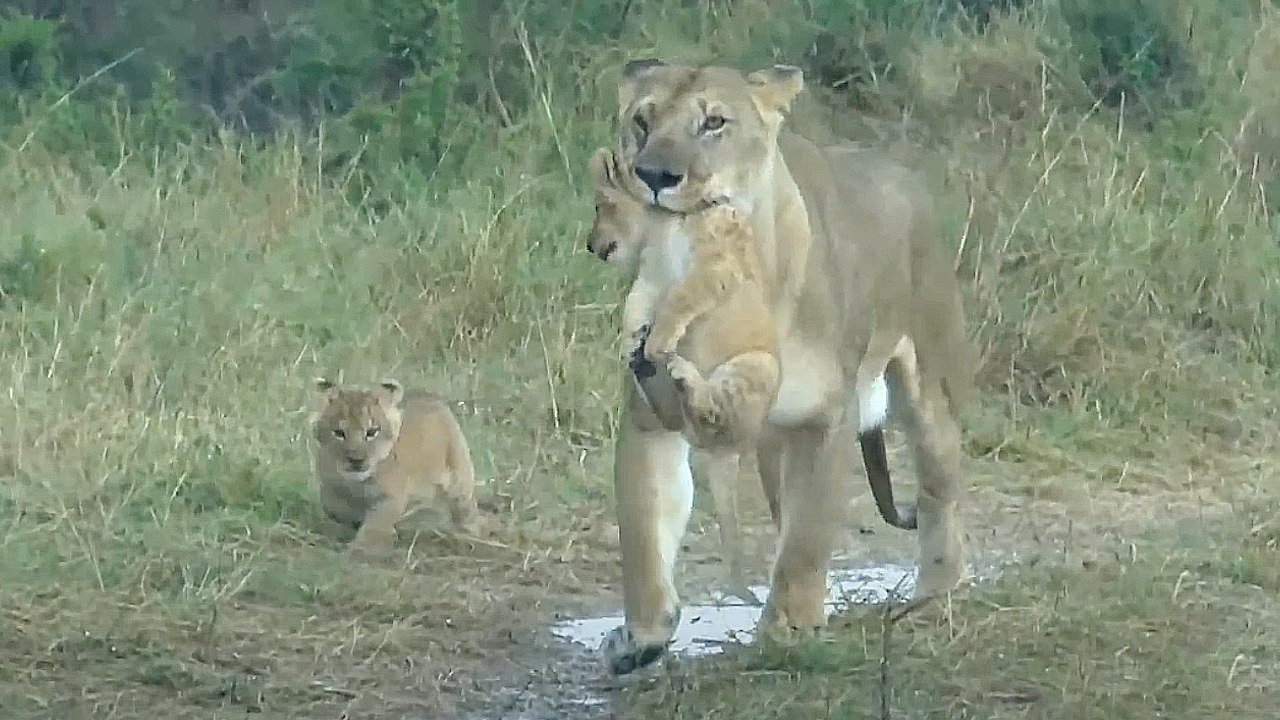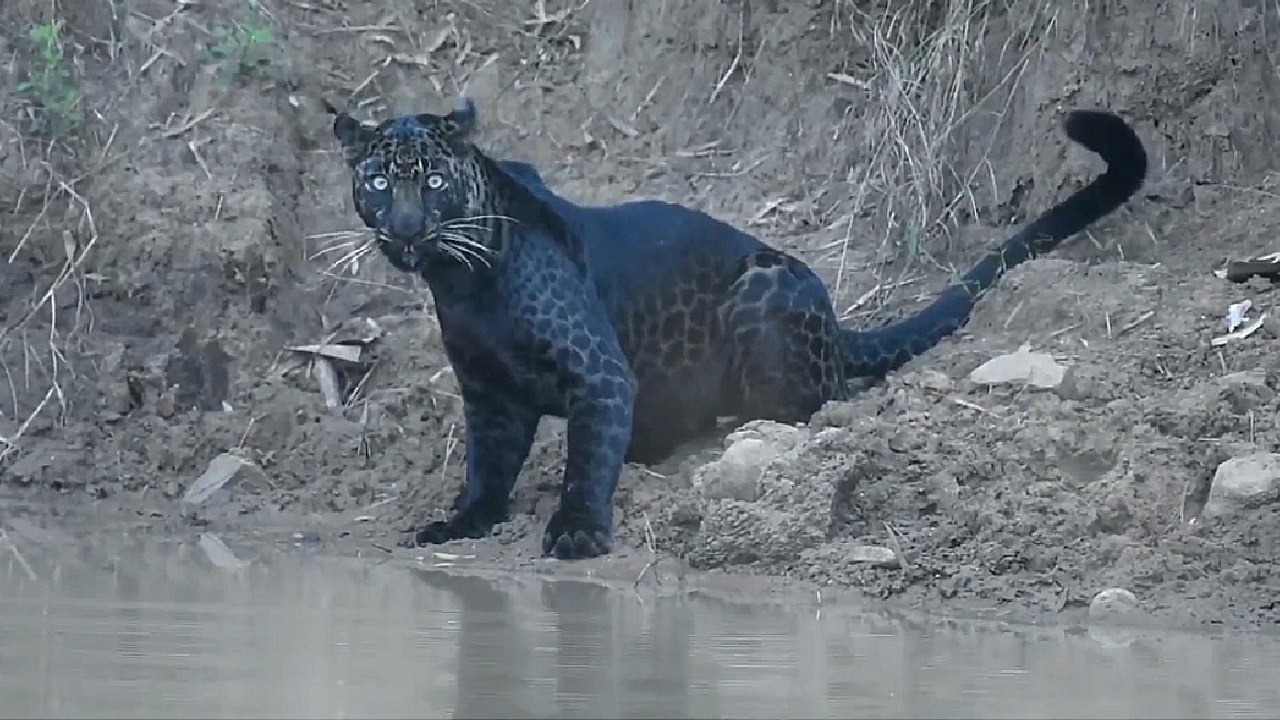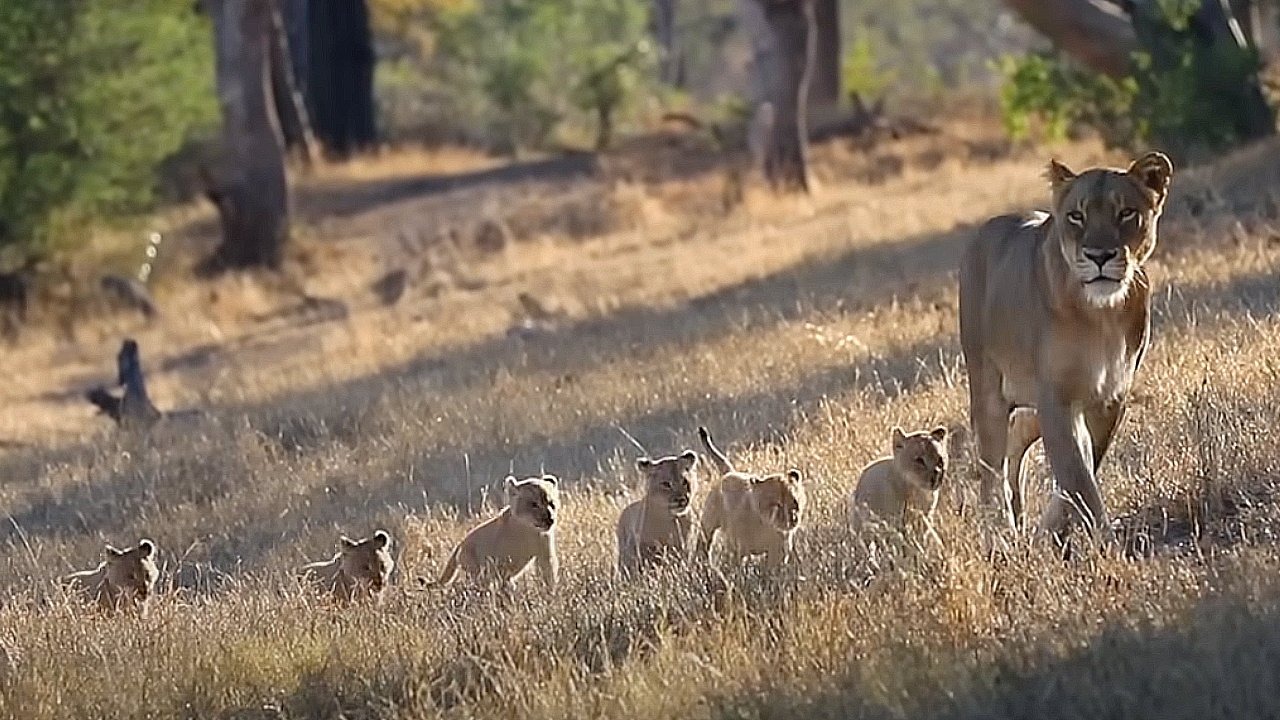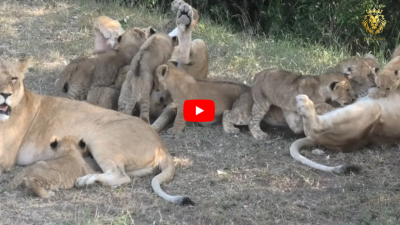Incredible pictures taken at Cape Cod show the gruesome moment two great white sharks devoured the carcass of a finback whale.
Passengers on board a whale-watching cruise off the Massachusetts shore were shocked to find the sharks – one of them 18 feet (5.5m) long – tucking into the remains of one of the animals they had come to see.
Marine biologist Joanne Jarzobski captured the images around seven miles (11km) from Barnstable Harbor after officials warned there was a whale floating in the water.
Speaking to MailOnline, Ms Jarzobski said sharks had a bad reputation but their presence was a ‘good sign of a healthy ecosystem’.
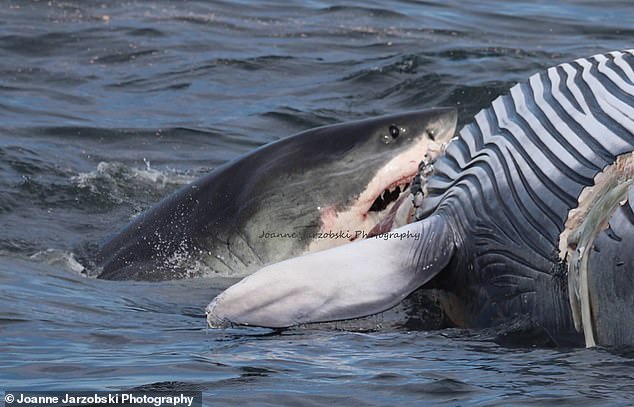
Passengers on board a whale-watching cruise off the Massachusetts shore were shocked to find the sharks – one of them 18 feet long – tucking into the remains of one of the animals they had come to see
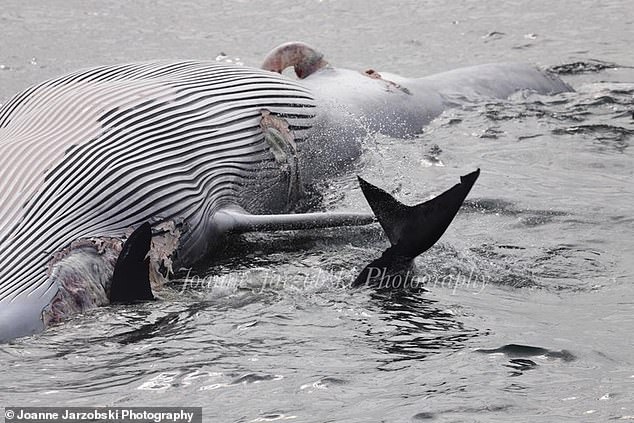
Marine biologist Joanne Jarzobski captured the images around seven miles from Barnstable Harbor after officials warned there was a whale floating in the water
Ms Jarzobski, who is also a professional photographer, took the pictures on the Hyannis whale watching boat earlier this month.
She said: ‘We had received a report in the morning that this whale was floating in the bay and we were asked to try to document it on our way out on our whale watch.
‘Thus far the cause of death of the finback is undetermined. There were at least two great white sharks scavenging on the dead whale.
‘One of the great white sharks was extremely large estimated to be 18 feet or longer. She was huge!
‘The whale is belly up and the black and white stripes you see are the pigmentation of the rorqual pleats (throat pleats).
There were around 160 passengers on board who were ‘in complete awe’ – as were the crew – as they watched the apex predators scavenge the dead whale.
Ms Jarzobski said: ‘Dead whales are part of a great white sharks diet and they help to break down the whale and contribute those nutrients back into the system.
‘As an important animal (apex predator) in our environment, sharks have gained a notoriously bad reputation yet sharks are a very good sign of a healthy ecosystem.
‘Getting the opportunity to see a great white shark in action is truly a once-in-a-lifetime experience for our passengers & crew.’
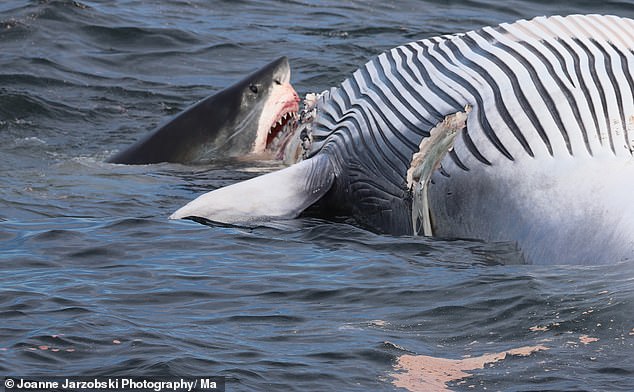
The passengers had received a report in the morning that a whale was floating in the bay and were asked to try to document it on their way out on the whale watch in Massachusetts
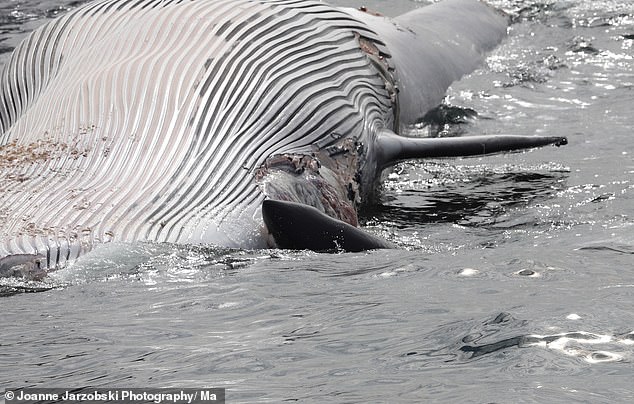
There were around 160 passengers on board who were ‘in complete awe’ – as were the crew – as they watched the apex predators scavenge the dead whale
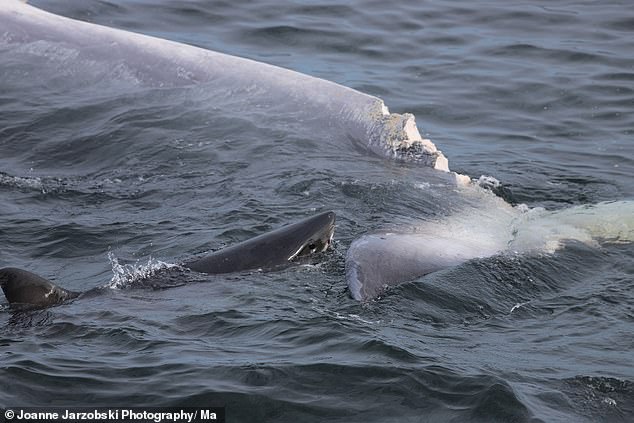
Ms Jarzobski – who took the pictures of the two sharks devouring the whale – said sharks had a bad reputation but their presence was a ‘good sign of a healthy ecosystem’
HOW SHARKS EARNED THEIR RUTHLESS REPUTATION
Sharks are the most efficient predators on earth and have long terrified humans.
Their basic design has never really changed over the course of 200million years and they are considered to be complex and intelligent.
Their teeth are fear factor number one, with the great white’s teeth growing up to two-and-a-half inches in length.
Their prey are impaled on the pointed teeth of the lower jaw where they saw away sections of the flesh. The serrated edges of the teeth help with this process.
Their teeth are brittle and are constantly breaking off but are also constantly regrowing and on average there are 15 rows of teeth present in the mouth at one time.
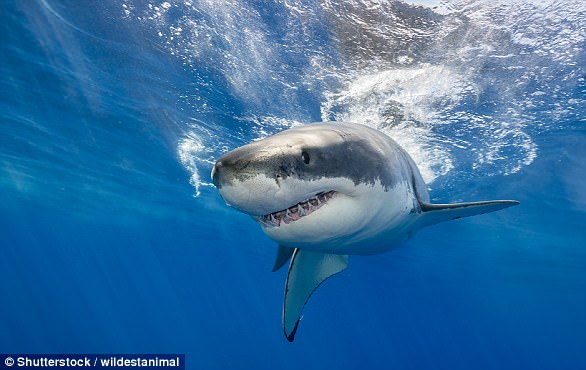
Sharks are the most efficient predators on earth. Their basic design has never really changed over the course of 200million years
Their speed is fear factor number two.
They are very fast in the water compared to humans with the mako shark able to reach an incredible 60mph in bursts.
The great white can reach speeds of 25mph.
By comparison, 5mph is the fastest a human being can reach.
A shark’s power and size terrifies us, too.
The great white shark can grow up to 20 feet and while it has no particular taste for humans even an exploratory bite is enough to cut a man in half.
Most sharks release a human after its first bite but sometimes, that’s all it take to kill a person.
However, sharks have far more reason to be afraid of humans. We kill up to a million of them a year, often just cutting off their fins to make into soup and throwing the rest of the shark back into the water, where it starves or drowns.

